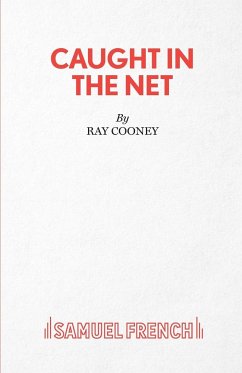
Caught in the Net
Versandkostenfrei!
Versandfertig in über 4 Wochen
29,99 €
inkl. MwSt.

PAYBACK Punkte
15 °P sammeln!
The cold on the 8th of February, 186-, was more intense than the Parisians had experienced during the whole of the severe winter which had preceded it, for at twelve o'clock on that day Chevalier's thermometer, so well known by the denizens of Paris, registered three degrees below zero. The sky was overcast and full of threatening signs of snow, while the moisture on the pavement and roads had frozen hard, rendering traffic of all kinds exceedingly hazardous. The whole great city wore an air of dreariness and desolation, for even when a thin crust of ice covers the waters of the Seine, the min...
The cold on the 8th of February, 186-, was more intense than the Parisians had experienced during the whole of the severe winter which had preceded it, for at twelve o'clock on that day Chevalier's thermometer, so well known by the denizens of Paris, registered three degrees below zero. The sky was overcast and full of threatening signs of snow, while the moisture on the pavement and roads had frozen hard, rendering traffic of all kinds exceedingly hazardous. The whole great city wore an air of dreariness and desolation, for even when a thin crust of ice covers the waters of the Seine, the mind involuntarily turns to those who have neither food, shelter, nor fuel. This bitterly cold day actually made the landlady of the Hotel de Perou, though she was a hard, grasping woman of Auvergne, gave a thought to the condition of her lodgers, and one quite different from her usual idea of obtaining the maximum of rent for the minimum of accommodation. "The cold," remarked she to her husband, who was busily engaged in replenishing the stove with fuel, "is enough to frighten the wits out of a Polar bear. In this kind of weather I always feel very anxious, for it was during a winter like this that one of our lodgers hung himself, a trick which cost us fifty francs, in good, honest money, besides giving us a bad name in the neighborhood.












